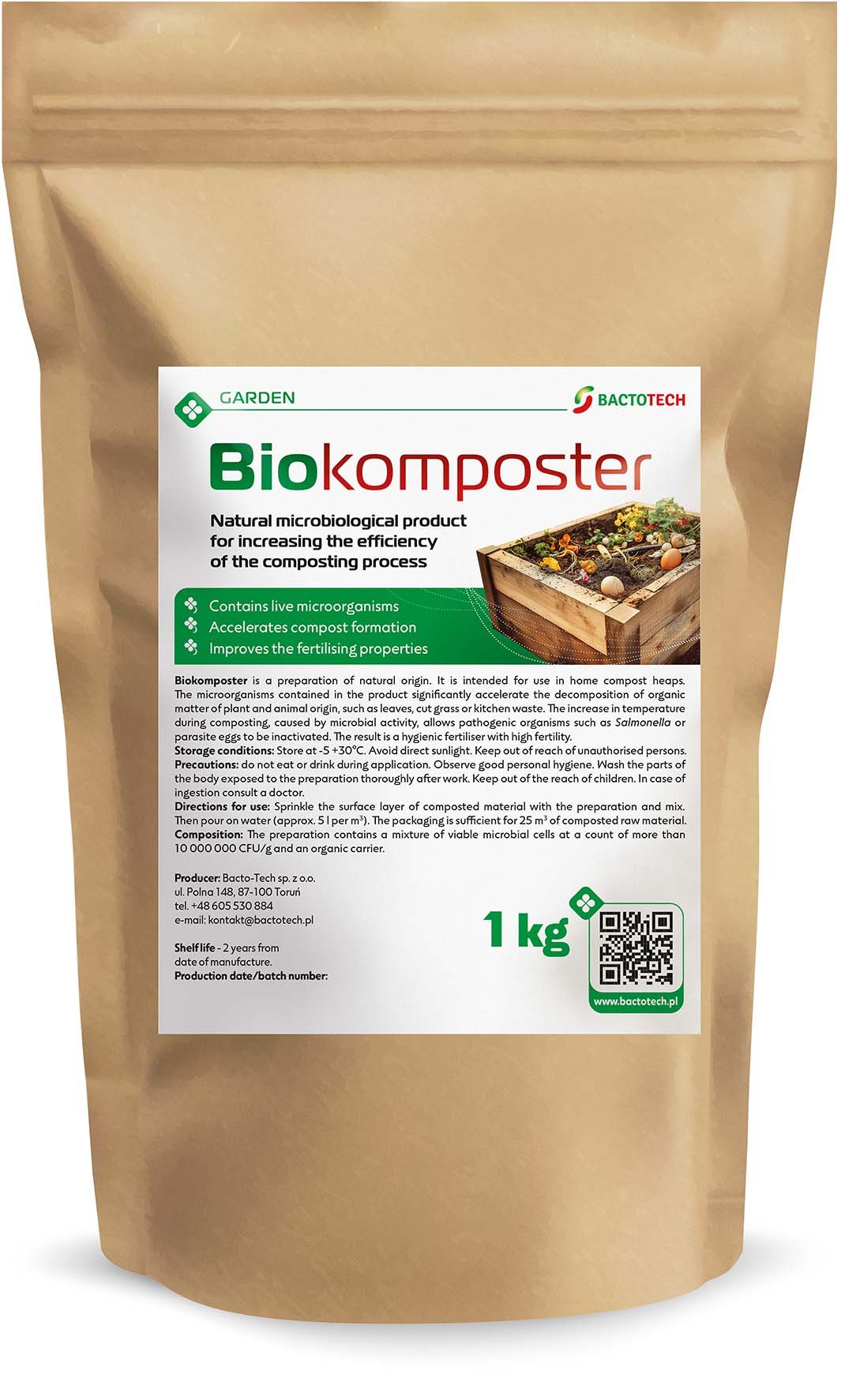House and Garden
Our homes and gardens are places where we spend many hours each day. If you’re looking for safer alternatives to harmful chemicals, you’re in the right place.
BioKomposter
BioKomposter is an ecological and efficient preparation for accelerating the composting process of organic waste of plant and animal origin. BioKomposter is suitable for composting scraps of plant origin, such as leaves, branches, cut grass, weeds, as well as some kitchen waste, i.e. vegetable scraps, egg shells, coffee and tea grounds. With Biokomposter, shredded cellulose and lignin can also be composted.

Biokomposter is a fast-acting microbiological blend that transforms your kitchen and garden waste into rich, healthy compost – with less smell and less waiting. What makes it so effective is its powerful team of five natural bacteria: Bacillus subtilis, Bacillus amyloliquefaciens, Bacillus licheniformis, Bacillus megaterium, and Bacillus mojavensis – all working together to speed up decomposition and enrich the final compost.
Bacillus subtilis kicks off the process by breaking down organic matter and keeping pathogens in check. Bacillus amyloliquefaciens targets hard-to-digest materials like cellulose, helping to soften and rot garden waste faster. Meanwhile, Bacillus licheniformis boosts the production of natural enzymes, further accelerating the composting cycle.
Bacillus megaterium plays a key role in mobilising phosphorus – a crucial nutrient for healthy compost – while Bacillus mojavensis ensures the composting continues efficiently, even in drier or more stressful conditions. Together, they reduce unpleasant odours, speed up the breakdown of waste, and improve the nutrient profile of your compost.
👉 Learn about B. subtilis
👉 B. amyloliquefaciens for composting
👉 B. licheniformis in waste breakdown
👉 B. megaterium: phosphorus power
👉 B. mojavensis: compost in tough conditions
Directions for use:
Sprinkle the top layer of composted material with the preparation and stir. If the compost is not moist, irrigate it with about 5 litres of water per 1 m3 of composted biomass. For best results, the pile should be topped with water weekly and the compost stirred every 2-4 weeks. After about 2-6 months (depending on the amount and type of
composted material), a good quality fertile and hygienic fertiliser is obtained. 200 g of Biokomposter is sufficient for up to 5 m3 of composted matter.
